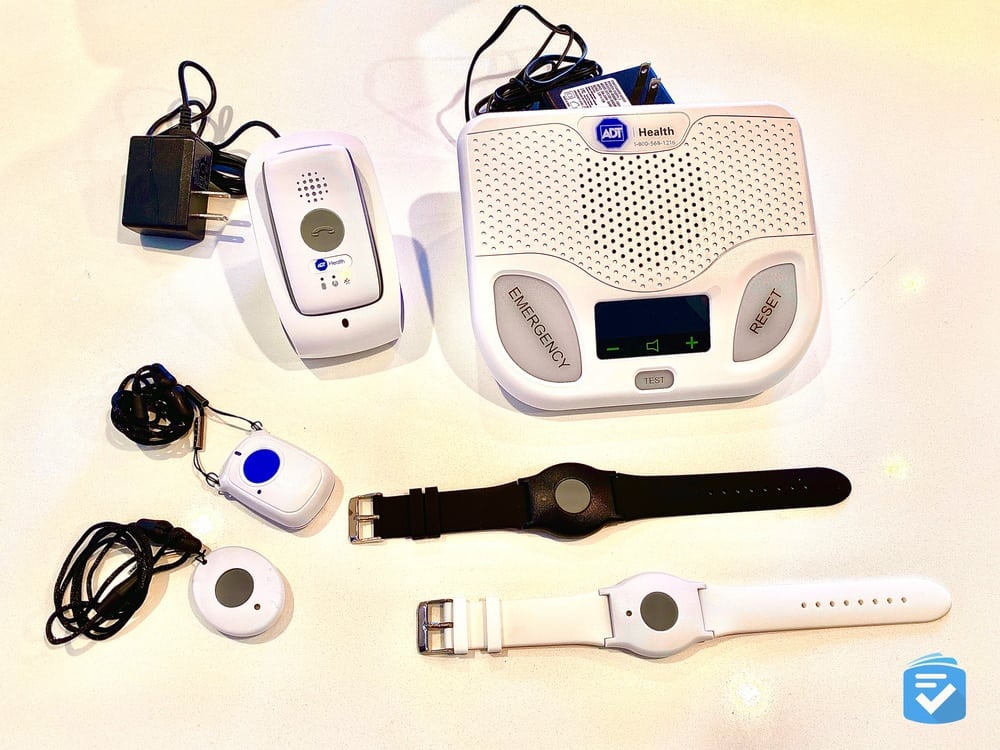Alzheimer’s and Dementia Life Expectancy Calculator
Following a dementia diagnosis, it’s understandable that many individuals want to know the answer to the question: How long do I have to live? The answer might be scary, but understanding the way cognitive conditions progress will ultimately help you plan your approaches to health care and budgeting.
As there are many different types of dementia, the average life expectancy varies greatly. When you factor in underlying health conditions, access to care, and early diagnosis, the answer can be somewhat hard to pin down. Because of this, it is best to use the information in this article as a reference or guide instead of a definitive answer.
| Type of Dementia | Symptoms | Average Life Expectancy Post-Diagnosis |
|---|---|---|
| Alzheimer’s |
|
8-12 years |
| Frontotemporal |
|
8 years |
| Huntington’s |
|
10-20 years |
| Lewy body |
|
6-12 years |
| Vascular |
|
5 years |
Information from this chart was obtained from Alzheimer’s.org.
How to Manage Projected Life Expectancy
Taking all the necessary steps and preparing for your dementia diagnosis can help ease the stress on family members, caretakers, and you. This way, you can plan for the future and be ready in the event that the situation takes a dire turn. Plus, preparing and planning before symptoms worsen can help you have the chance to clearly address pressing matters. This could include planning for a long-term caregiver, looking into life insurance, and estate planning.

Planning and managing your diagnosis ahead of time can help you make better-informed decisions about your health and those impacted by your diagnosis. Some of the common ways to prepare for the progression of symptoms include health care planning, revisiting your will, and determining who will legally make health decisions on your behalf in the event that you are not able to make your needs known.
While it can be difficult to think about what to do as symptoms worsen, it is empowering to have the opportunity to think about it before the day arrives. For instance, you may want to look into donating your body to science for research in Alzheimer’s and dementia care. As symptoms progress, you may also want to plan ahead and think about whether you will require long-term care at an assisted living facility, or if you would prefer self-directed care or hospice care.
Pro Tip: If you or a loved one has been diagnosed with dementia, read my 2025 guide to senior housing and care, which provides information on licensed and specialized dementia care, memory care, and Alzheimer’s care communities.
Life Expectancy by Stage of Alzheimer’s/Dementia
It can be difficult to figure out if a loved one is officially diagnosed with Alzheimer’s or dementia, especially when symptoms may be murky. In general, symptoms may change or worsen over time, even before any official dementia-related diagnosis.
If you are concerned about early-onset Alzheimer’s or other types of dementia, you can speak with your physician and review your medical history and the concerns you may have about memory loss and other symptoms. After that, your physician will decide whether you require imaging tests or CT scans, or an MRI to get a better look at your brain for an Alzheimer’s or dementia marker.
FYI: Finding the right medical alert system for a loved one with dementia can be challenging. Read my list of medical alert systems for dementia to learn more about how these devices can help.

Another way to get an overview of the stages of dementia is the Global Deterioration Scale, a measurement and assessment tool for dementia. Developed by Dr. Barry Reisberg, the Global Deterioration Scale gauges the various stages and levels of severity for Alzheimer’s and other types of degenerative dementia. It also helps caregivers and individuals have a better understanding of the various stages of dementia.
Symptoms of dementia can range from mild to severe — with different clinical characteristics. The scale has stages from 1 to 7, with stages 1 through 3 marking the pre-dementia stages. In general, moderate cognitive decline or mild dementia starts at stage 4. Each stage describes some of the common characteristics or symptoms that an individual might experience as the disease progresses.
Typically, an individual who receives an Alzheimer’s diagnosis can expect to live eight to 12 more years, and some people exceed this. It all varies based on the individual’s underlying health conditions, lifestyle, early diagnosis, and other factors.
Dementia Life Expectancy Calculator
| Dementia Level | Clinical Characteristics | Estimated Life Expectancy |
|---|---|---|
| 1: No Cognitive Decline | No evidence of memory deficit | N/A |
| 2: Age-Associated Memory Impairment |
|
10+ years |
| 3: Mild Cognitive Impairment |
|
10 years |
| 4: Mild Dementia |
|
3-8 years |
| 5: Moderate Dementia |
|
1.5-6.5 years |
| 6: Moderately Severe Dementia |
|
4 years or less |
| 7: Severe Dementia |
|
2.5 years or less |
Making a Dementia Care Plan
Planning for dementia care is an important step to helping you or a loved one feel prepared for the future. While no life expectancy calculator is exact, it can give you an idea of what to expect before and after your dementia diagnosis. Fortunately, there are many steps that you can take to help plan for dementia care and put your mind at ease.
The first step is to speak with your physician and talk about your symptoms. Once you receive an official diagnosis, you’ll be able to plan. An early diagnosis can help you get a head start on the planning and dementia process in the event that your symptoms may worsen. You can also take this time to research and educate yourself on local and national dementia care resources, and familiarize yourself with the various stages and symptoms you might experience.
Did You Know: If you’re looking to care for a loved one with my dementia, you should read my guide: Caring for a Parent With Dementia at Home.
Empowering yourself with resources is an important step to dementia care planning. It’s also a good idea to plan around your support system and include them in your decisions. If you’re a caregiver, it’s a good idea to delegate tasks and go over a care plan so that you don’t experience caregiver burnout.
Lastly, it’s important to discuss legal and financial plans with caregivers or close family. It’s also a time to figure out if there is any aid or assistance in the form of Medicaid, Medicare, VA, long-term care insurance, or other resources for support in planning around dementia care. Being transparent with the family and having a close-knit support system can help individuals feel less isolated and more prepared for what’s to come before proceeding with an official caregiving plan.

A general caregiving plan can include daily tasks, housework/cleaning, medication management, and other important aspects for someone with dementia.
FYI: Dementia affects 50 million people globally — a number that’s projected to rapidly increase by 2050.
Dementia Life Expectancy Frequently Asked Questions
-
How long can an 85-year-old live with dementia?
Life expectancy for individuals diagnosed with dementia may vary depending on a number of factors But in general, those that are diagnosed at a later stage in their mid-80s might have a shorter life span than those living with dementia at 60 or 65 years of age. This is largely due to the fact that individuals in their 60s could have early-onset dementia and their cognitive decline may be at a slower pace than that of an 85-year-old.
-
What is the average life expectancy of a person with dementia?
In general, the life expectancy of an individual with dementia is around eight to 12 years after being diagnosed. However, this number isn’t set in stone, and many individuals diagnosed with dementia may live longer than this period.
-
What is the most common cause of death in dementia patients?
The International Journal of Geriatric Psychiatry notes that dehydration and general deterioration of a dementia patient are the most common causes of death during late-stage dementia.
-
What are the signs of end-stage dementia?
Some of the common signs of end-stage dementia include difficulty swallowing, inability to walk or sit upright, cold hands and feet, restlessness, and overall deterioration.


